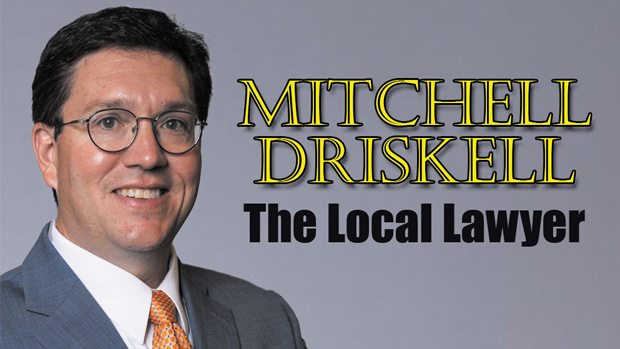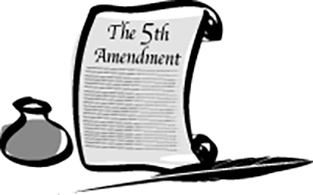
The Constitution. Here’s what happened. The Fifth Amendment says that the government cannot make you admit to things you do not want to admit. “The Right to Remain Silent.” It’s the right to refrain from self-incrimination. The government cannot make you say things that implicate you in crimes.
That’s great, but problems came up in civil lawsuits where one citizen is suing another citizen and then asks the Court (the government) to make people answer questions about the lawsuit. People would get sued for money in civil lawsuits and the person being sued was alleged to have done things that might be crimes. The person being sued would “plead the fifth” and refuse to answer questions about their actions, which would prevent the other side from proving their case. Example: I run a red light and hit your car. You sue me. Your lawyer asks me about the wreck in court, and I “plead the fifth” because running a red light is technically a crime, and I do not have to answer questions in court that might implicate me in criminal activity. Your lawyer would ask the Judge to make me answer questions, but the Judge could not force me to answer the questions because the government cannot make me incriminate myself in a crime. The Fifth Amendment was being used in situations where the government was not interested in charging people with crimes.
To remedy this situation, our law created requirement to be able to “plead the fifth” when you are being sued for money in a civil lawsuit. In order to remain silent, there must be a reasonable chance that the police are going to charge you with a crime if you admit to criminal activity. If the government says that they have no interest in charging you with a crime and nothing you say is going to get you in any trouble, or if the time limit to charge you with any crime has passed, then you cannot hide behind the fifth amendment when you are being sued by someone for your actions.
Bill Cosby was being sued by a woman he abused. Her lawyer wanted to ask him about the abuse, under oath in a recorded meeting called a “deposition.” Cosby was “pleading the fifth” and refusing to answer. The woman’s lawyer went to the local District Attorney (the lawyer that decides who to bring to court on criminal charges) and asked him if he ever intended to charge Cosby with rape and, if not, tell Cosby that so that Cosby will not be able to plead the fifth and avoid answering questions. The woman’s lawyer asked the District Attorney to remove the possibility of criminal charges so Cosby would not be able to hide behind the fifth amendment in the lawsuit. The District Attorney agreed, partially because the case was so old and the time limit had expired. He promised Cosby that the government would never prosecute him for this rape. Then Cosby answered the questions and testified about the rape under oath.
Years pass and a new District Attorney was elected. That District Attorney promised to prosecute Cosby if he was elected. Also, the law changed and extended the time period to charge people with rape. Once the new DA was elected, he brought charges against Cosby and the testimony Cosby gave in that deposition was used in the prosecution. Cosby was convicted. Cosby appealed the conviction (trying to get it undone) arguing that the State went back on its deal. The recent decision that let Cosby out of jail was about this deal. The Court agreed that Cosby’s constitutional right to remain silent was violated. He was promised no prosecution. He relied on that promise. Then he was convicted with statements he would not have made but for that promise.
While it makes any reasonable person sick that Cosby got out of prison when he admitted to the acts, it should also make reasonable people sick that the government broke its promise and violated the constitution in the process.



1 thought on “The Local Lawyer: “Why on Earth Did They Let Bill Cosby Out of Prison?””